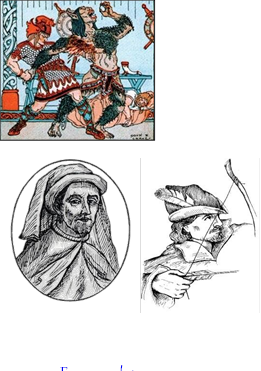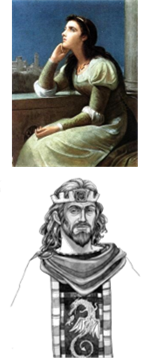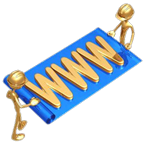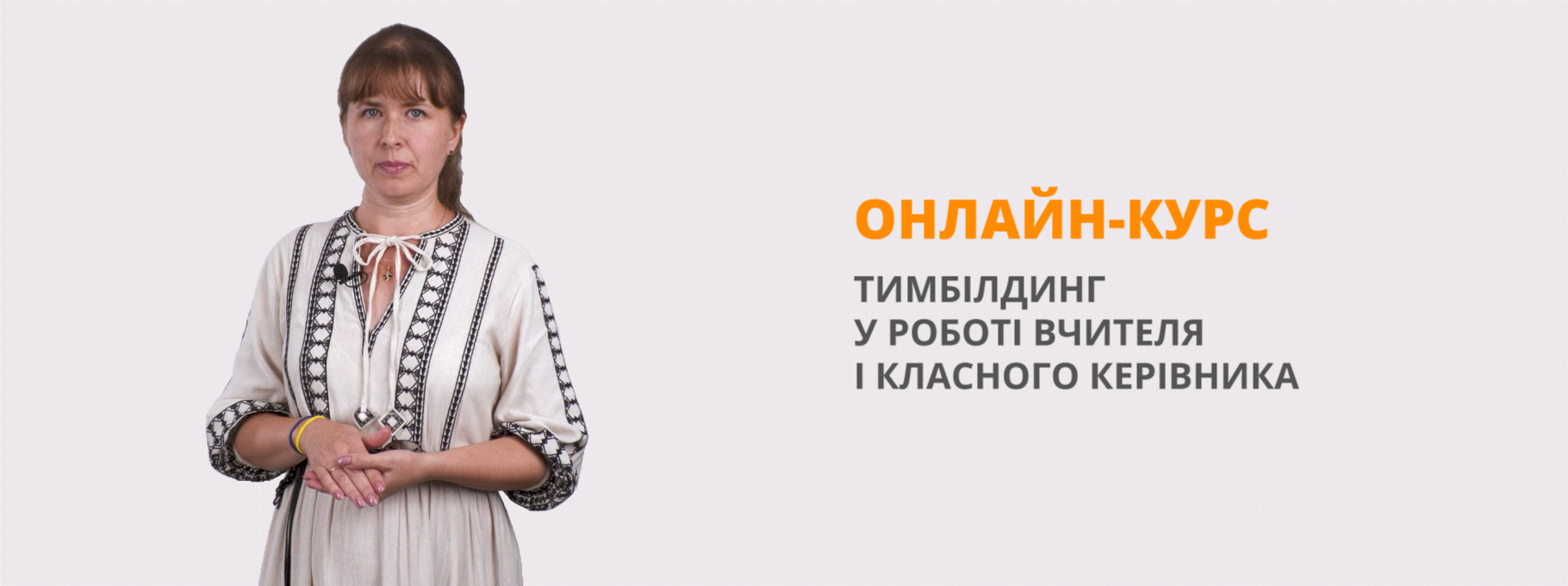Урок для 8х класів "Literature quest"
Literature Quest
English literature lesson for the 8th forms
Datsenko Anna
І. Початок уроку:
|
1. Привітання |
|
0,5хв |
|
2. Повідомлення теми і мети уроку
ІІ. Основна частина: |
|
0,5хв |
|
1. Обговорення теми уроку |
|
2хв |
|
2. Обговорення особливостей літ-их періодів |
|
4хв |
|
3. Робота з письменниками та їх творами |
|
5хв |
|
4. Літературні персонажі |
|
4хв |
|
5. Робота з метафорами та алітерацією |
|
5хв |
|
6. Робота з літературними жанрами |
|
3хв |
|
7. Складання віршів |
|
5хв |
|
8. Обговорення «шекспірівської граматики» |
|
2хв |
9. Ознайомлення та обговорення сучасних тенденцій у мові:
Weblish 5хв
EuroEnglish 5хв
ІІІ. Заключна частина:
1. Підсумок уроку 2хв
2. Оголошення і пояснення д\з 1хв
3. Виставлення оцінок 1хв ТЕМА: Літературне змагання
ЦІЛІ УРОКУ:
Практична:
![]() вдосконалювати навички монологічного мовлення на рівні
вдосконалювати навички монологічного мовлення на рівні
мікро висловлювання з опорою на ключові слова, схеми, вивчений матеріал; ![]() формувати навички систематизувати і коментувати одержану
формувати навички систематизувати і коментувати одержану
інформацію; ![]() удосконалювати навички вживання та розпізнавання метафор та алітерації в літературних творах та усному мовленні.
удосконалювати навички вживання та розпізнавання метафор та алітерації в літературних творах та усному мовленні.
Освітня:
![]() поглибити і розширити знання учнів щодо новітніх тенденцій
поглибити і розширити знання учнів щодо новітніх тенденцій
розвитку мови.
Розвиваюча:
![]() розвивати фонематичний слух, увагу, уяву, гнучкість
розвивати фонематичний слух, увагу, уяву, гнучкість
![]() мислення, вміння логічно викладати свої думки і вести групову бесіду; розвивати здатність мовного самоконтролю; розвивати самостійність у праці.
мислення, вміння логічно викладати свої думки і вести групову бесіду; розвивати здатність мовного самоконтролю; розвивати самостійність у праці.
Виховна:
![]() формувати критичне ставлення до вчинків людей; виховувати почуття доброзичливості і поваги один до одного
формувати критичне ставлення до вчинків людей; виховувати почуття доброзичливості і поваги один до одного
під час спілкування; ![]() прищеплювати любов до читання, літератури.
прищеплювати любов до читання, літератури.
ОБЛАДНАННЯ:
картки тестових завдань;
пісочний годинник;
картки літературних персонажів.
Literature Quest
Introduction - Good morning, pupils!
- Today, as you can see we are going to speak about past and present in literature. We also repeat the material of this term and you will write a little test. So, let’s start.
Main part
1. Discussing the lesson theme
- And the first question will be connected with the theme of our lesson. Why do we have past and present in our quest?
- What similar things can be found in both periods?
- Why are some books from the past still popular nowadays? - Do we have different characters?
2.Literature periods
![]()
- Look at the blackboard and tell everything you can about each period in English Literature.
- What are the main features of a man shown in the period of the Middle Ages? What influenced them?
- How did the literature and the language change in the period of the Norman Conquest?
- What were the main genres in literature at that time?
- How did the representatives of the Renaissance depict a man at their time?
- What does “the chain of being” mean?
- Why did such genre as a pamphlet appear during the period of Bourgeois Revolution?
- What’s the difference between the Renaissance and the Enlightenment?
3.Writers and their works
- The first real task will help me to see your knowledge of writers and their works. You’ve named them answering the previous questions, now you must match them with the period they created their masterpieces and find the exactly their works.
|
Daniel Defoe |
William Caxton |
|
Sir Thomas More |
Robert Burns |
|
John Milton |
William Shakespeare |
|
Jonathan Swift |
Geoffrey Chaucer |
|
Paradise Lost |
King Lear |
|
The Robin Hood ballads |
Utopia |
|
My heart’s in the Highlands |
Hamlet |
|
Gulliver’s travels |
Robinson Crusoe |
|
The Canterbury Tales |
Beowulf |
4.Literature characters
- 
 The next task will be connected with the characters from the books we’ve mentioned. I’ll ask some of the volunteers to come and turn their back to me; then I’ll stick a name of a character on the back and others have to describe the hero without naming him or her.
The next task will be connected with the characters from the books we’ve mentioned. I’ll ask some of the volunteers to come and turn their back to me; then I’ll stick a name of a character on the back and others have to describe the hero without naming him or her.
Beowulf
William Caxton
Robin Hood
Juliet
King Arthur
Robinson Crusoe
- We talked about authors, their books and characters, now it’s time to speak about genres and forms that help writers to make their works more remarkable.
- Look at the next task. The first part of this term we often met such things as metaphors and alliteration in description of the first literary writings. Explain, what are they? And write down your own examples for the following words and sounds.
Metaphors – descriptive words based on a certain likeness between two subjects or two ideas that show the subject in a new light.
STARS EYES TREE

Alliteration – a sound effect when each line has three stressed syllables usually beginning with the same consonant.
/t/, /s/, /S/, /k/
- Metaphors and alliteration were often used in many genres of different periods. So, what genres do you know?
- Which one appeared during the Enlightenment?
- Look at these two columns: your task is to match the genres with their definitions.
|
1) fabliau(x)___; |
a) tales in verses or lyrical poems honouring brave and |
|
2) romance ___; |
noble knights, their heroic deeds and attitude towards |
|
3) sonnets ___; |
ladies. |
|
4) pamphlet ___; |
b) have 14 lines which can be broken down into four |
|
5) fable ___; |
sections called quatrains. |
|
6) folk song ___; |
c) are lyrical-epic or lyrical-dramatic poems. |
|
7) ballads ___. |
d) is a short rhymed poem usually set to a melody. e) short stories with animals for characters and conveying a moral. f) funny stories about humbugs and the unfaithful wives of rich merchants. They were brought from France. g) a brief treatise, often on a subject of current interest, published in pamphlet form. |
6.Making a poem
- Of course to speak about literature and not to try ourselves in it would be a crime. That is why your next task will be to make up a short poem using my rhymes as helpers. It is not a Shakespearean sonnet but a usual poem of 8 lines.
- You also should be fast as I limit you with my sand watch for 3 minutes. Work in pairs and let the muse shines upon you.
|
|
|
|
|
|
7.Discussing differences in grammar on the past, present and future
- As you know the grammar as well as the language during the periods was different. Do you remember the examples of these differences during the Renaissance and nowadays?
Thee / Thou – you
Thy and Thine – your
Art – are
Ay – yes
Would – wish
Alas – unfortunately
Adieu – good bye
Sirrah – sir
- eth – -s, or nothing at all
erst – once, before, not long ago, just now
“DON’T”, “DID”, “DO” DIDN’T EXISTS at that time
“Don’t be afraid.” “Be not afraid.”
“Don’t hurt me.” “Hurt me not.”
“What did he look like?” “What looked he like?”
- Teenagers made their own contribution into the development of the language, too. Changing it this way and making it easier for understanding and for saving time while writing SMS or e-mails. I’m talking about such thing as WEBLISH.
- What is it? Your ideas.
- Here are some examples of it. Try to read the message.
VWLS R 4 WMPS – Vowels are for wimps
Gr8r xtrmz – Greater extremes
- Now try to explain the following words used in e-mailing.

 gr8 – l8r –
gr8 – l8r –
4ever – thx – msg – ur – n – plz –
clml8r – wood –
gurl – luv –
bubi – da –
- Sms messages with some Weblish language words become very popular. Here are some of them (send these sms to someone you love).
|
9 lessons in life: Learn 2 care, learn 2 smile, learn 2 cry, learn 2 give, learn 2 forgive, learn 2 share, learn 2 trust, learn 2 love & learn 2 SMS me DAILY...!!! |
|
It feels nice when some1 misses u. It feels good when some1 loves u. It feels better when some1’s with u. But it feels the best when some1 never 4gets u. |
|
U can fall from the sky, U can fall from a tree, But the best way to fall Is in love with me. |
|
Without your SMS days are like – MOANDAY, TEARSDAY, WASTEDAY, THIRSTDAY, FRIGHTDAY, SHATTERDAY & SADDAY. So SMS me everyday!!!! |
-  But
But
Weblish is not the only thing we add to our language understanding. Sometimes we shorten the words or misspell them in our behalf – especially difficult ones.
-  That is why we may speak about EuroEnglish program in future. You may read it just over there on the blackboard. Maybe, you will add new rules.
That is why we may speak about EuroEnglish program in future. You may read it just over there on the blackboard. Maybe, you will add new rules.
|
|
With the announcement that English will be the official language of the EU, Her Majesty’s government will agree to change English spelling to be known as “EuroEnglish”. |
|
|
In the first year, “s” will replace the soft “c”. Sertainly, this will make the sivil servants just for joy. The hard “c” will be dropped in favour of the “k”. This should klear up konfusion and keyboards kan have 1 less letter.There will be growing publik enthusiasm in the sekond year, when the troublesome “ph” will be replased with the “f”. This will make words like “photographer” 20% shorter. |
||
In the third year, publik akseptanse of the new spelling kan be expekted to reach the stage where more difficult changes are possible. Governments will enkorage the removal of double letters, which have always ben a problem to akurate speling. Also, al wil agre that the horible mes of the silent “e” in the language is disgraseful, and it should go away.
By the fourth year, peopl wil be rady to steps such as replasing “th” with “z” and “w” with v
During ze fifz year, ze unesesary “o” kan be dropd from vords kontaining “ou” and similar changes vud of kors be usd to ozer kombinations of leters. After zis fifz year, v vil hav a realy sensibl riten styl. Zer wil be no mor trubls or difikultis and evrivun vil find it easy to understand each ozer.
ZE DREAM VIL FINLY KUM TRU!
-Try to explain the changes and their appearance.
-Of course, it is only a joke and there is no such a programme. But who knows?..
Conclusions - What new things have you found out today?
-What was the most difficult task during the lesson? Why?
-The world of literature is so beautiful. So, there are lots of new things we are going to learn and devour.
Home assignment
-So, make 4 cards presenting each period in Literature of Great Britain. Incude this information:
* a short description of the period; * its representatives and their works; * pictures would be great.


про публікацію авторської розробки
Додати розробку

